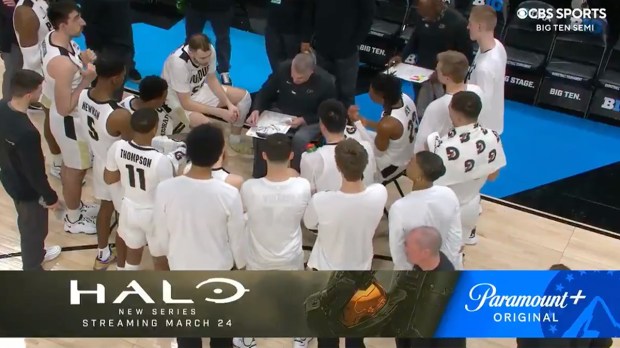If you’re a millennial, or at least a video game aficionado, then you’re most likely familiar with Halo. The 2001 first-person-shooter (FPS) game is widely regarded as an influential masterpiece that revolutionized the genre.
While Halo did indeed introduce elements that still reverberate through modern FPS games – like regenerating health and limited armaments – it did something else for young players: it introduced them to Gregorian chant.
Halo
Today, Halo is a massive franchise that encompasses 16 video games, 20 books, and a new live-action television adaptation on Paramount+. Back in 2001, however, there was just Halo, and as soon as players loaded up the title screen they were met with this music.
It’s missing the tell-tale drone of a deep voiced bass and maybe some Latin lyrics, but in every other regard it is a perfect example of the Gregorian style. When listening, one can almost see a group of monks singing in a secluded chapel. The chant gives way to the fast-paced orchestrated soundtrack, but most players never got that far, as they clicked through to get back to their game.
NCAA Tournament
Sports commentator Jim Nantz is not a millennial or a gamer, as he proved during the Michigan State vs. Purdue game of the 2022 NCAA Tournament. On March 12, while reading a plug for the Halo Paramount+ series, he became baffled by the solemn tones of the chant.
After giving the promotional line there was a brief rest in the music, but when the voices began singing again, Nantz commented:
“Streaming March 24, woah!” Nantz said. “Exclusively on Paramount+… Gonna have some nightmares tonight after that.”
Nantz seems to have confused the “somber” vocal piece with some sort of horror genre. This too goes to show that he’s never picked up an Xbox controller, but it also belies a certain unfamiliarity with the ancient music of the Church. Perhaps it’s that Nantz is like Meghan Trainer; he just can’t get into a song without that bass.
Halo in Gregorian form
It is for the benefit of Jim Nantz, and all chant lovers, that we thought it prudent to show off the works of the Finnish Gregorian chanters Munx Gregoriana. This ensemble focuses on Gregorian chant, but they brought the oldest music tradition to the 21st century when they made a faithful Gregorian recording of the Halo theme in 2021. Note the stupendous drone of their bass.
Kids love it
The song has become a cultural landmark that kids from all backgrounds can rally around. In 2018, a video emerged of 80 boys singing the theme within a public bathroom. One boy starts off the tune, and the others immediately go silent. In a matter of moments the whole room is singing along. Outside the restroom, however, the girls didn’t really get it:
It’s almost hard to believe that a group of young people could come together around anything these days, let alone a song steeped in ancient Catholic traditions. This speaks to the incredible popularity of gaming, as well as the platform’s immense potential for evangelization. What incredible things could be achieved if game producers would aim their efforts towards a Eucharistic revival?


